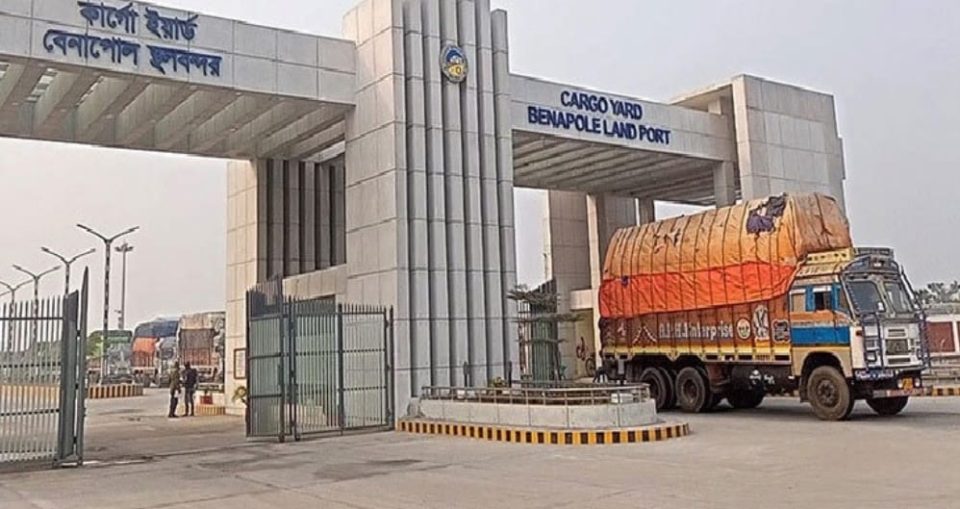Md. Emdad Hossain Bhuiyan, Sylhet: The country’s Department of Foreign Trade has banned the entry of several export products from Bangladesh, including jute products, woven fabrics, hemp and yarn products, through Indian land ports. The ban was announced in a government statement released on Friday.
The statement said that the import of these products through land ports on the India-Bangladesh border is no longer possible. Only these products will be allowed to enter through the Nava Sheva sea port on a limited basis.
The list of banned products includes: multi-ply woven fabrics, single and unbleached jute woven fabrics, hemp and jute yarn, ready-made garments (RMG), processed food items, fruit-flavored carbonated drinks, cotton and cotton yarn waste, plastic and PVC products, wooden furniture, paints and plasticizers, and various industrial raw materials.
Indian authorities said the ban does not apply to the transport of Bangladeshi goods to Nepal and Bhutan. However, goods coming through these countries cannot be re-exported to the Indian market.
Earlier, on May 17 this year, India imposed a similar land port ban on some goods, including ready-made garments from Bangladesh. Even then, it was said that these goods would be able to enter only through the Kolkata and Nava Sheva seaports.
According to analysts, India’s decision is a major setback for Bangladesh. Border traders and exporters will be the most affected. Since transporting goods by land is much easier and less expensive, if the ban comes into effect, it will create a huge pressure on all three – time, cost and supply chain.
Bangladeshi businessmen are also calling the matter ‘unexpected and unilateral’. They say that such a trade barrier is surprising in a time of good relations with neighboring countries.
Experts believe that such a ban will not only affect trade and commerce between the two countries, but also hinder regional economic cooperation.
It is not yet clear whether the Bangladesh government is taking the initiative to lift the ban through diplomatic discussions on this issue. However, the need for policy coordination in the use of land ports, in addition to finding alternative markets for exporting goods, is now being felt more strongly.
Bangladesh-India trade has a long-standing good relationship and room for trust. Such a unilateral ban can affect the balance of that relationship. What is needed now is a rational and sustainable solution through bilateral discussions.

